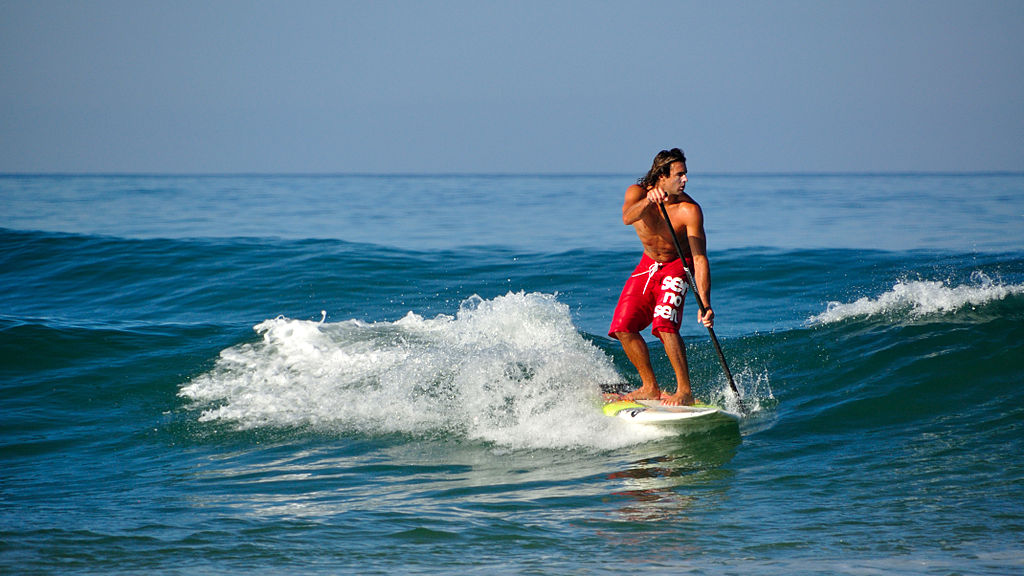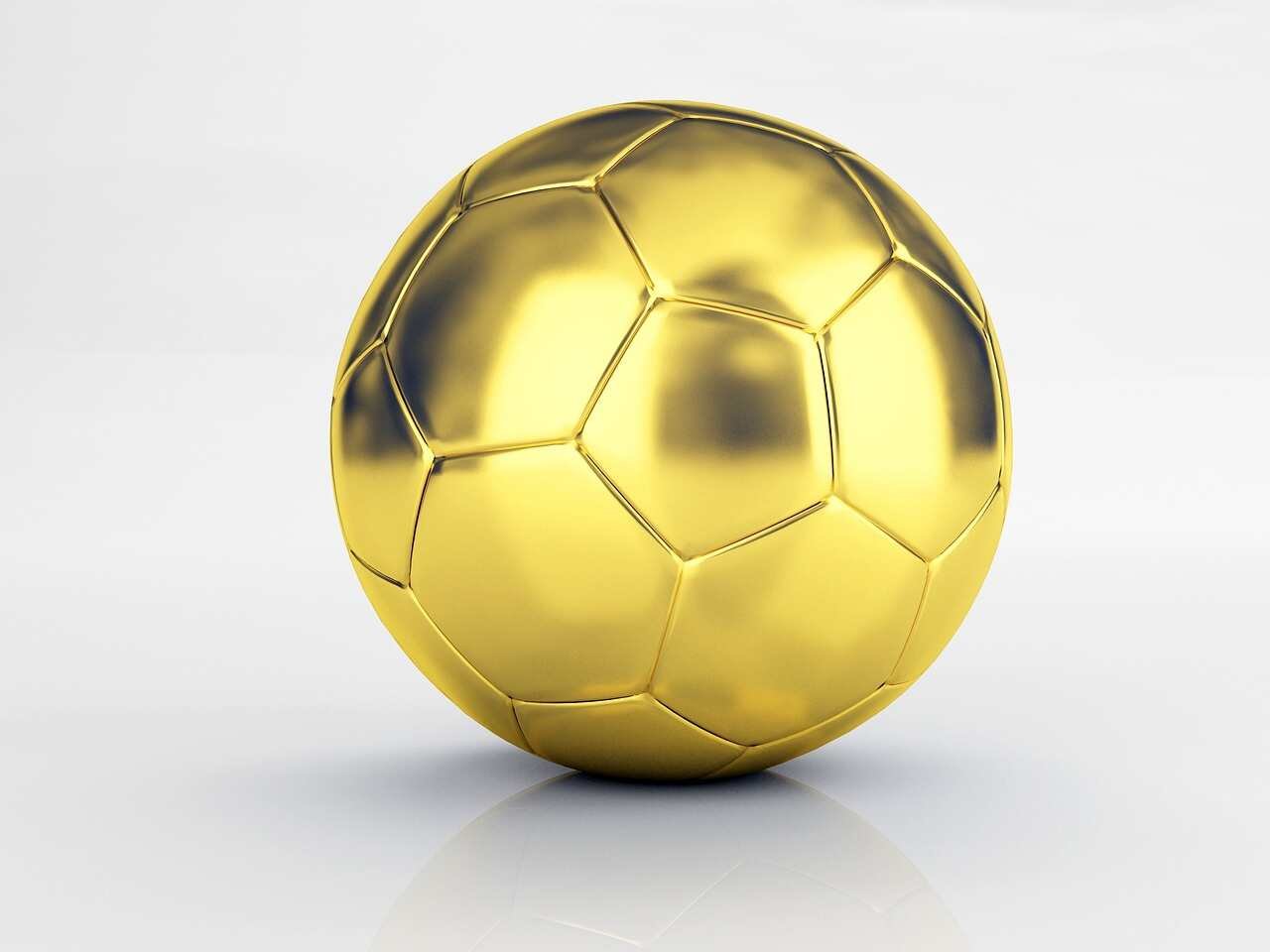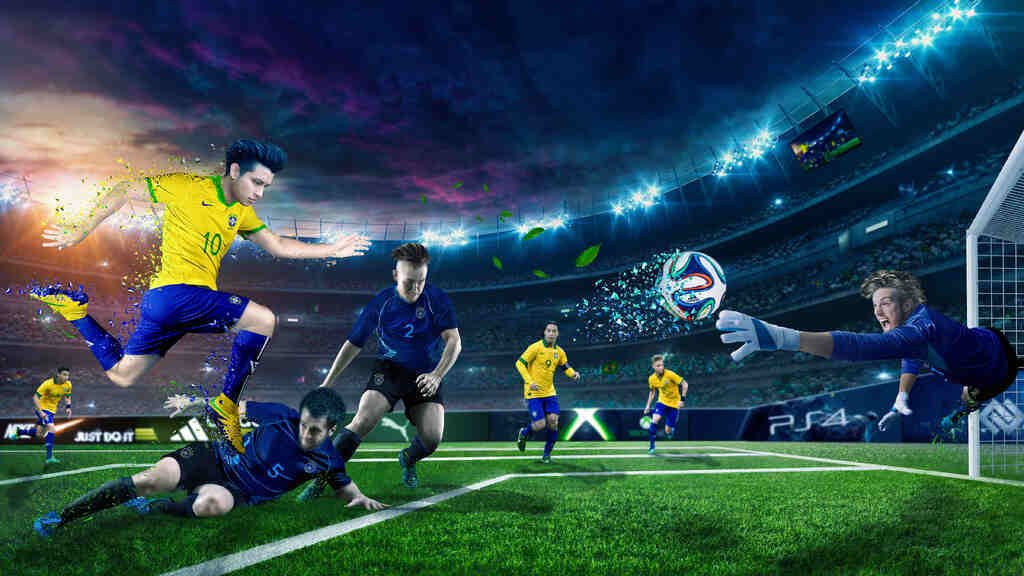Sport That Uses A Board
Ever asked, what kind of sport that uses a board? These sports can take place on land, air, water or some combination of the three.
With the holidays knocking on the door, we begin to think of the many activities that are just waiting to be tested. What could be better than spending the summer by the sea or near a water point! In addition to lazing around and sunbathing, you can enjoy a wide choice of water sports to fill up on thrills. Here is a list of nautical windsurfing activities that are on the rise during this summer period.
Bodyboarding
All the inventions of the 1970s have not aged badly: the modern bodyboard – a wide board 1 m long – refined on the waves of Hawaii, is today more popular than ever. Unlike surfing, bodyboarding is practiced in a lying position. But what bodyboarders lose in prestige compared to surfers, they gain in maneuverability, thanks to the fins that come with their board. Figures, rotations and jumps are part of the game. For the pros, a world competition passes through South Africa, Brazil and Australia. For beginners, on Oahu, Hawaii, Waikiki’s 1-2m waves are perfect.
Honolulu International Airport is 12 km from Waikiki. Book your accommodation at www.gohawaii.com. Dozens of shops rent bodyboards by the hour, and supermarkets offer them at low prices.

Bodyboarding. Cinder1280, CC0, via Wikimedia Commons
Casterboarding (waveboarding)
Is a wheeled device, a variant of a skateboard. It consists of a plate (deck) formed of two parts connected by a torsion element and equipped with two wheels, or some of them is not connected. The machine is used for moving and performing acrobatic figures (tricks), comparable to skateboarding.
It consists of two independent platforms joined by a metal torsion bar, with a wheel on each plate with bearings. The two plates can be moved from one side to the other, and with this it is possible to propel yourself without having to put your foot back on the ground. You can even climb slopes with a simple hip movement. To move forward you have to make an “s” with the skateboard.
Waveboarding. Bin im Garten, CC BY-SA 3.0, via Wikimedia Commons
Fingerboarding
A fingerboard is a scaled-down replica of a skateboard that a person “rides” with their fingers, rather than their feet. It’s typically 100 millimeters (3.9 in) long with width ranging from 26 to 55 mm (1.0 to 2.2 in), with graphics, trucks and plastic or ball-bearing wheels, like a skateboard. This can be used to do traditional skateboard tricks, such as an ollie, kickflip, and more.

Wooden Fingerboard “Turbo”. Ukren at Russian Wikipedia, Public domain, via Wikimedia Commons
Freestyle scootering
Is an action sport that involves using scooters (also known as kick scooters) to perform freestyle tricks, in a similar to skateboarding and BMX freestyle. Indoor and outdoor are used in professional competitions.
Freestyle scootering is a sport practiced with a reinforced scooter (shock resistant), performing various acrobatic figures (tricks).

A scooter rider grinding a rainbow rail in the streets of Trondheim, Norway. Scooterhistorian, CC BY-SA 4.0, via Wikimedia Commons
Kneeboarding
The kneeboard is practiced in a kneeling position and not standing on the board.
Positioning itself between water skiing and surfing, kneeboarding is practiced on your knees on a short board. The practitioner will first be helped by the fins at the start of the wave. Then, he will perform almost the same figures as in surfing.

Knee boarding on the river. Alicia.trip, CC BY-SA 4.0, via Wikimedia Commons
Land windsurfing (Terrasailing)
The speed sail uses the wind to move forward and can reach speeds of 80 to 90 km/h (50/56 mph) on standard equipment. It’s kind of like windsurfing on sand. The main place of evolution of the speed sailer is the beach but you can also ride on dry land, salt lake, car park (provided you have permission), etc.

Land windsurfing (terrasailing). Windsurf ro, CC BY-SA 4.0, via Wikimedia Commons
Mountainboarding
The mountainboard (dirtboarding) is a hybrid device, a mix of snowboard, skateboard and mountain bike. It can be used on any type of terrain: grass, earth, asphalt, hard sand or skateparks.
Mountainboarding can also be practiced in traction on certain beaches, accompanied by a kitesurfing wing.
Contrary to popular belief, it is not in the mountains that mountainboarding is most developed, since it is in the plains that we find the greatest number of spots managed by associations. Just like in snowboarding, there are three major practices: freestyle, freeride and boardercross.

Mountainboard. DLangrish (English Wikipedia User Name), CC BY-SA 3.0, via Wikimedia Commons
One wheel boardsport
This is an all-terrain rollerboard sport, as comfortable on the road as it is on dirt and sand! It is also designed for off-road use. Riders who have tried it have compared the sensation it gives to snowboarding on snowflakes…

Onewheel Electric Boardsport. Maurizio Pesce from Milan, Italia, CC BY 2.0, via Wikimedia Commons
Standup paddleboarding
Stand up paddle or SUP consists of standing on a rigid or inflatable board while rowing with paddles. It is an aquatic entertainment accessible to all.
Standup paddleboarding. A.belloc, CC BY-SA 3.0, via Wikimedia Commons
Paddle board
Also called paddle boarding, the paddle board is a particularly popular hobby during the summer. It is a question of using a specific board to row only with the arms while lying on the belly. It is also possible to kneel, it is a derivative of stand up paddle.
Read also: MMA Mixed Martial Arts | An Extreme Combat Sport
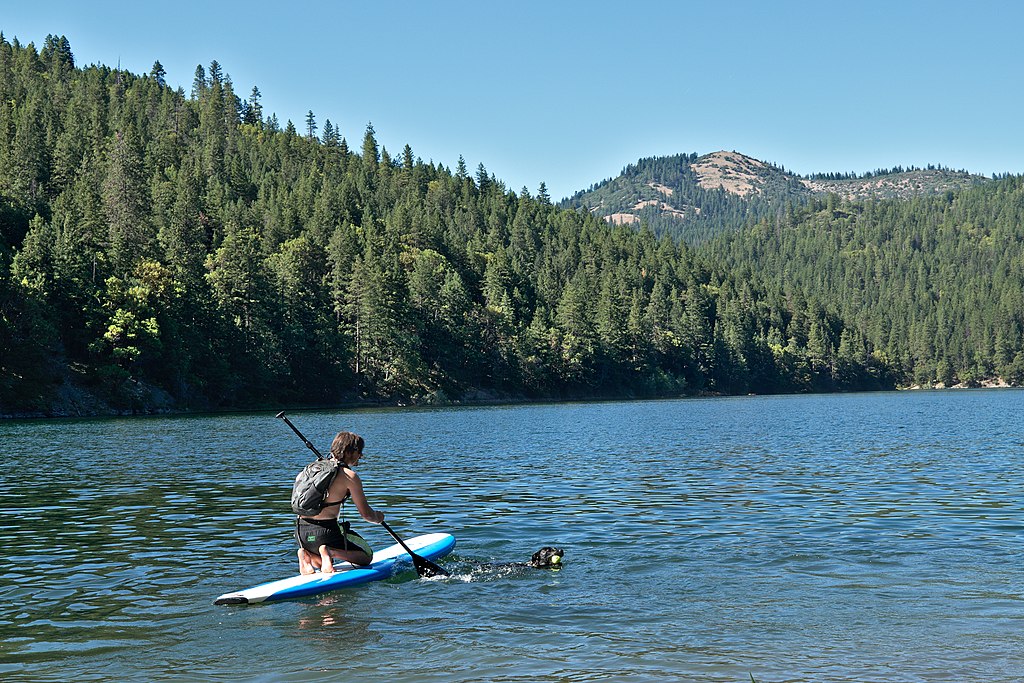
Paddleboarding in Squaw Lakes, Oregon. Trougnouf, CC BY 4.0, via Wikimedia Commons
Sandboarding
For example in Dubai, wealthy and idle expats looking for something to occupy their weekends besides champagne brunches climbed 200-300m high dunes that surrounded the city, strapped snowboards to their feet and left gravity behind. do the rest. Today you can buy a ‘sandboard’ and tour operators drive you in 4×4s over cinnamon-coloured ridges. Big Red (Al Hamar for the locals) is the site par excellence, but a guide will take you to less frequented dunes. The city has given itself its own ski slope, sheltered from the sun in a shopping mall – but that’s another story. Or you can try in Cape Town, South Africa too.
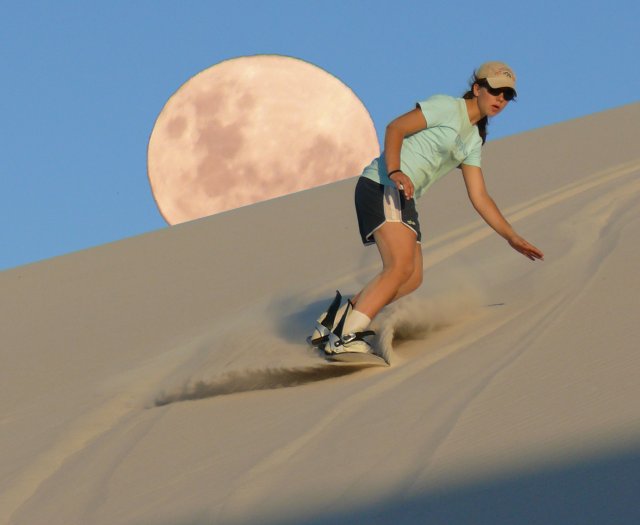
Ladybird Sandboarding at Atlantis Dunes, Cape Town, South Africa. Bongani2, CC BY-SA 3.0, via Wikimedia Commons
Skateboard
There are skateboarding-friendly cities all over the world, but only skateboarding legend Tony Hawk’s home state has such a concentration of parks created for the sport. One of the biggest, the Lake Cunningham Regional Skate Park in San Jose, sports six concrete bowls and numerous tubes, and regularly hosts skate and BMX camps where young skaters come to perfect their ollies (jumps). The end of the course is very particular, since it is a concrete reproduction of a break (wave) of the coast. The park was designed by the California Skateparks company, another construction of which adorns the garden of Tony Hawk himself. The latter is not open to the public.
Get your skate ready and check out the Parks and Recreation sections of www.sanjoseca.gov and www.visitcalifornia.com.
Skimboarding
Skimboarding is halfway between surfing, windsurfing and kitesurfing. The principle is simple: run with a board in your hands and slide it over a fairly thin film of water (seaside or lakeside). The goal is to get on the board and slide as far as possible. You just need to be in good physical condition to be able to practice this kind of activity. It is the ideal sport if you are afraid of very deep bodies of water.
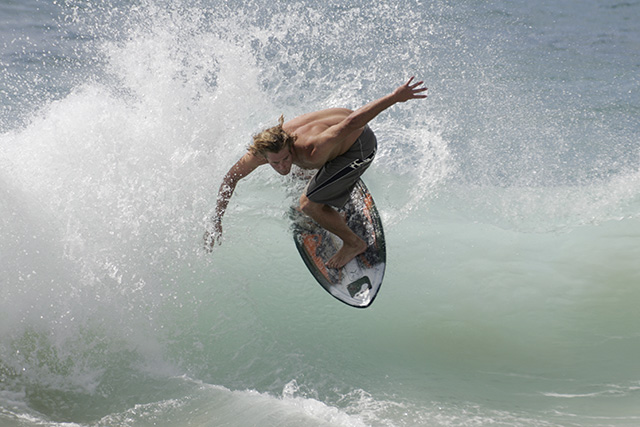
Skimmboarding. Nonameplayer at English Wikipedia, Public domain, via Wikimedia Commons
Skysurfing
Combine parachute, plane and board in one sport? It is possible thanks to skysurfing!
Skysurfing is a sport in which a skydiver attaches a board to his feet during freefall. He then becomes a “sky surfer” and performs various surfing moves in the air. It is this board that brings speed in rotations and movements, speed that will delight lovers of thrills.
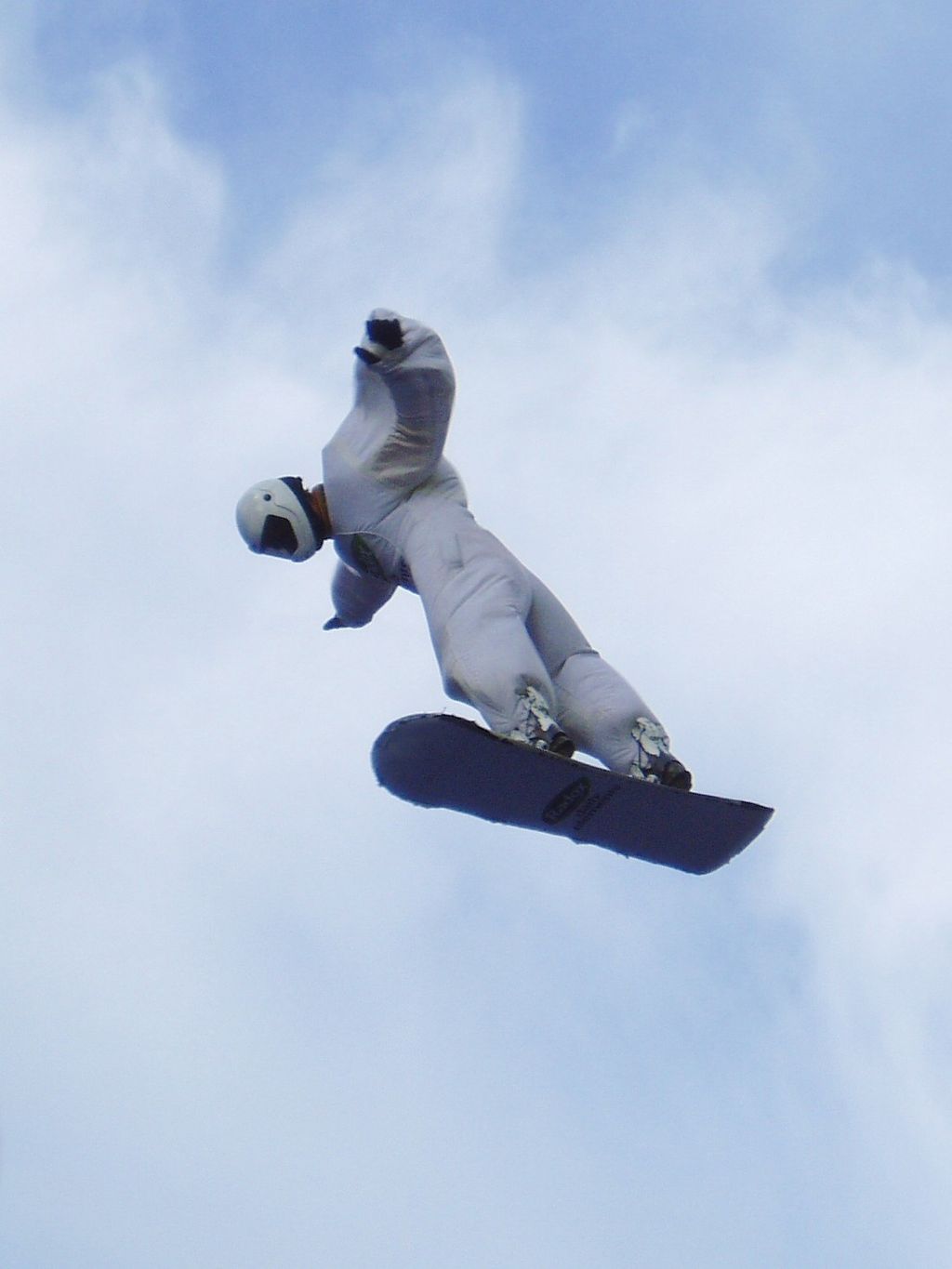
Skydiving. Skydiving in Central London!!.jpg: Steve Cadmanderivative work: Waldir talk, CC BY-SA 3.0, via Wikimedia Commons
Surfing
Balancing on their boards, surfers let themselves be pushed by the force of the wind. The size of the boards varies according to that of the waves. Beginners will prefer the malibu while the longboard and shortboard respectively allow you to ride small and large waves.
In this sport, the main thing is never to stand still but also to know how to respect the priority. The surfer who is furthest inside a wave therefore has priority to catch it. It is also important to observe how the waves break, to find out about the tide (rising or not) and to pay attention to the currents.
When you watch the pros, sliding on the water seems disconcertingly easy. But that’s long before you’ve tried and had a cup. Surfing is very technical. It is therefore advisable to observe the maneuvers and body movements of those who have experience.
Decided to catch a wave? Use your sense of observation once again and identify where the waves are the strongest, therefore able to propel you towards the shore. Don’t wait for a wave to “break” to row with all your might, taking care to be ahead of the wave. The time to get up has come. Keep your balance by bending your knees.
Windsurfing
Windsurfing or windsurfing is a kind of boat that combines the pleasures of surfing and sailing. The goal is to stand on a board or a float and slide on a body of water with the help of the wind. In addition, this type of sport requires a certain technical mastery. Indeed, the principles of inclination on sailing are much more complex than other sliding sports.
Above all, windsurfing requires good settings: place the boom at shoulder height, make sure that the straps are wide apart to have more control, move the mast foot back (not too much anyway) to gain speed… But of course, it will also be necessary to choose the appropriate sail. Some are designed for beginners, others allow better slaloming, and still others are optimized for freeriding.
Then you have to learn to use your body. Already, your weight will have to be put more on the back foot in order to prevent you from being catapulted by an excess of speed. The support on the front will be done especially before changing the maneuver. The front foot will be used to control the board, the rear will rather control your direction. The legs also play an important role: the front is generally stretched but the back must remain bent. In fact, the posture will guarantee your stability. It’s a bit like skateboarding, but on the water.

Windsurfing. Robbynaishus1111, CC BY-SA 4.0, via Wikimedia Commons
Wakeboarding
Wakeboarding is a sliding sport that consists of standing on the surface of the water with the help of a board. It is a derivative of surfing, snowboarding and water skiing. The principle is to be towed by a boat while holding a rope to perform jumps of different types of figures.

Wakeboarding, Guantanamo Bay. MC1 Robert Lamb, Public domain, via Wikimedia Commons
Kitesurfing or kiteboarding
This summer, you can then discover the most beautiful kitesurf spots in the country or on the other side of the world. It is a water sport that consists of standing on a board that is linked to a kite, thanks to a harness. The kite is then pushed by the wind, which will allow you to glide on the water and double the adrenaline. You will be propelled several meters above the water. On the program: speed, freedom and power!

Kiteboarding or kitesurfing. Pierre Bouras, CC BY-SA 4.0, via Wikimedia Commons
This is a non-exhaustive list.
Sources: PinterPandai, GlideSoul
Photo credit (main picture): TheDigitalArtist via Pixabay
Sports Betting: A Comprehensive Guide to Types, Examples, and Strategies for Winning


